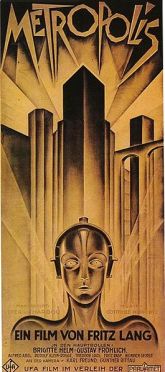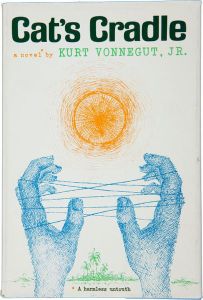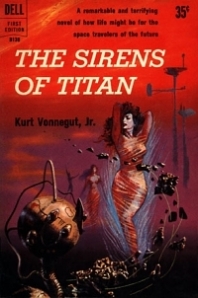 For novels that is… Some who publish young adult books still use them, I suppose. And, graphic novels. Movies, on the other hand, get away with giant robots flying around the sky destroying everything in their paths.
For novels that is… Some who publish young adult books still use them, I suppose. And, graphic novels. Movies, on the other hand, get away with giant robots flying around the sky destroying everything in their paths.
A very smart scientist–an off-the-chart smart scientist–found a way to work around the effects of gravity, the pull of the sun and other space objects revolving around it, and some basic rules of aerodynamics.
We don’t bother to count errors in the science of an action film. Robots can fight on the ground, in the sky and even in space. Spacecraft or other flying machines stop in mid-air so we assume they are equipped with anti-gravity devices. Ordinary machines evolve into superior, “cool-looking” warriors.
It’s exciting…in film.
Unfortunately, if writers do write something comparable in a science-fiction novel today, it would most likely be trashed or sold to Hollywood, but not published traditionally. (Okay, maybe it can pass for a young adult novel, but that’s the market anyway.)
With today’s economic conditions, most any novel dealing with the above would be considered hackneyed by the editors, and I can’t say I’d disagree. Robots, with the exception of microbots and other variants, have lost the top spot in science-fiction genre literature.
Cyber warfare is different. Here we are still dealing with a human-made attempt to create a helpful artificial intelligence and that becomes sentient. What happens after it is created and placed is the story.
So, I broke the publisher’s cardinal rule, knowing that the conflict, war against machines, is passé, over with, and done in. But, I did it anyway. I used the Cyber Bio War as the backdrop for my novel. What my characters experience is an unwinnable war against an evolving enemy with not just some, but all of the resources. Yet, the continue the fight. Humans are and always will be inferior with the usual weaponry, but they will not give up their humanity.
After I extrapolated existing science and societal trends I had to go there–to that world I created. Good writers can break the rules of good grammar in telling a story. Why can’t I explore content in the same way.
In Makr’s Shadow, I broke the rules of the latest publishing trend and paid the price, publishing an e-book instead. But I still think it is worth it.
Robots in science fiction literature seem to be window dressing, an accepted part of future society, but there’s always the exception. A different use, an unusual place. Creative fortune.
However, my “robots” are different. Cyberts, my “robots,” are mobile extensions of a central evolving artificial intelligence. Cyber are not the automatons of the past but a new accepted, sentient species–a race of thinking machines–machines that can do anything a Bio can do, only better.
At the moment, these Cyber are effectively maintaining the planet and pacifying its inhabitants by waging war on dissidents.
 We see a lot intelligent machinery in films–especially with the Marvel and DC comic book superheroes. Who else could giant robots fight? Normal humans would be crushed in a minute. The story would read like a metallic Jurassic Park, except there would be no eating the dead. I’ve yet to see a robot that does that. Massive destruction, yes. Eating its victims, no.
We see a lot intelligent machinery in films–especially with the Marvel and DC comic book superheroes. Who else could giant robots fight? Normal humans would be crushed in a minute. The story would read like a metallic Jurassic Park, except there would be no eating the dead. I’ve yet to see a robot that does that. Massive destruction, yes. Eating its victims, no.
Film producers want to create images that astound, not literature that fascinates and discusses the way we interact with our technology. There are a few exceptions like Gravity, Apollo 13, and a few others that deal with existing technology are still able to do that. Most films that pretend to be science fiction contain little plot or character development.
Now-a-days, most science fiction is about the effect of new science discoveries or technology gone awry, i.e. the atomic bomb. Still, the weird variations get in. You know them when you see them and put the book down, sorry you picked it up in the first place.
The definitions and types have grown far and wide with the interest and imagination of those who read SF. Still, the genre experts (call them publishers) say science fiction literature should focus on the “higher levels” of hard science for the most part; however, some publishers like to throw in fantasy (personal choice?), wars fought against superior alien technology and war’s that end the world, leaving a few survivors. All of these conflicts and situations, too, are obvious and overused.
However, there was a time when robots (uncool now) served in the background and often played a leading role in a novel of ideas. Isaac Asimov started a trend in 1946 when his I, Robot was published. It was also made into an science fiction action film with Will Smith.
Asimov created the Three Rules of Robotics:
- A robot may not injure a human being or, through inaction, allow a human being to come to harm.
- A robot must obey the orders given to it by human beings, except where such orders would conflict with the First Law.
- A robot must protect its own existence as long as such protection does not conflict with the First or Second Law.
For the most part, these rules have been respected by colleagues whenever robots are in contact with human beings.
In Makr’s Shadow was influenced by the work of Isaac Asimov (a highly underrated author) and Kurt Vonnegut, Jr. (a mainstream writer). Both were writers of the literature of ideas. I hope I’ve managed to merge the essence of each, and have done so respectfully. 
Unlike Asimov, who wrote science fiction and was delighted by it, Kurt Vonnegut, Jr. denied that any of his fiction fit in the science fiction genre, when all of his novels have elements of SF by definition, and easily fit a definition of SF very well.
It may have been an act, but I think he wanted to be accepted totally in the mainstream rather than appear side by side with that SF trash–genre fiction. You know, the kind that had aliens or robots in it?
Because it’s satire, does that make it mainstream literature. Vonnegut made fun of science fiction in The Sirens of Titan, but if you look at all his books you will find they either fit the definitions or contain elements of science fiction. And, unless he’s poking fun, you won’t see any robots. Ironically, his imaginative and thought-provoking novels make excellent cases for writing soft or social science fiction.
With the exception of Cat’s Cradle (atomic bomb), he uses the soft sciences of psychology, sociology, economics, history, time travel, and alternate realities or universes to make his point, as opposed to the “hard” sciences like chemistry, physics and biology.
In Makr’s Shadow, the ongoing conflict is the background in the same way as Vonnegut’s parody of science fiction masks his underlying idea. That one day we will develop artificial intelligence one day is certain. How we choose to use it will be more important than the development itself.
My dystopian digital novel, In Makr’s Shadow is a rock and roll, roller coaster of action, suspense, humor and character development– highlighted with positive values–and, if you can believe it, an evolving family.
According to Tricia Johnson, The Word Weaver, UK, In Makr’s Shadow is ” a superb read…edge of seat stuff until the very end!!”
And, she should know because she helped fine tune it. The ending is, of course, to be kept secret; however, it can be said the story is more about people than the machines.


